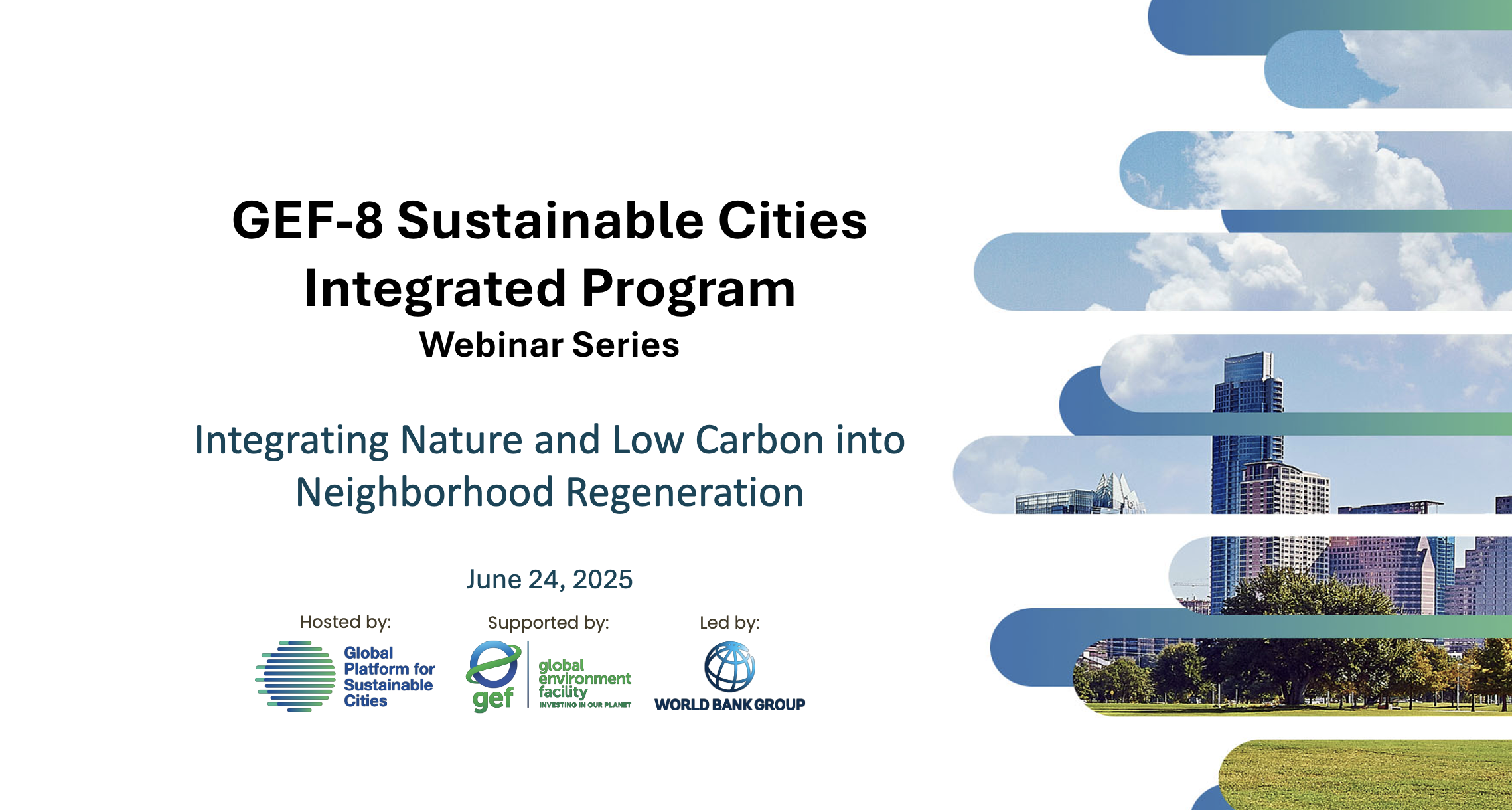GEF-8 SCIP Webinar Series: Integrating Nature and Low Carbon into Neighborhood Regeneration
When
Jun 24, 2025
Time
08:00 AM
Where
Online

About the series
This is the first in a series of World Bank webinars hosted by the Global Platform for Sustainable Cities (GPSC) to provide the GEF-8 SCIP cities with a platform to enhance their project design capabilities in alignment with the program’s thematic areas. Designed to support implementing agencies in developing effective project designs, the series will share lessons learned and practical examples. It will explore how to structure thematic and cross-cutting areas, while also providing broader guidance on project preparation strategies. The webinars aim to facilitate knowledge sharing, learning from good practices, and fostering collaboration among cities facing similar challenges. Participants will gain valuable insights, practical guidance, and opportunities to connect with peers, experts, and potential partners to advance sustainable and impactful project development.
Targeted Audiences include GEF Implementing Agencies (IAs) and their supporting teams, GEF-8 SCIP participating cities, and Partner organizations.
Overview of the session
Situated in a low-lying coastal plain of the Yangtze River Delta in northeast Zhejiang Province, Ningbo is renowned as one of the world’s largest international ports by cargo tonnage. Export-oriented development has long driven the city’s economic growth. In recent years, however, Ningbo has evolved into a more diversified economy, with growing sectors in logistics, finance, and e-commerce. The city frequently experiences typhoons and flooding, which present ongoing challenges to its infrastructure and economic stability. Additionally, due to its energy-intensive export industries, Ningbo’s per capita carbon emissions reach 15.5 tons—more than twice the national average. These factors underscore the importance of pursuing a carbon neutrality roadmap and enhancing urban resilience as strategic priorities for Ningbo’s sustainable development.
In response to these challenges, the GEF-7 Sustainable Cities Program has been supporting Ningbo in advancing its carbon neutrality goals and enhancing ecological and biodiversity conservation efforts. A key feature of the program is the implementation of several pilot initiatives that adopt integrated solutions to address the interlinked issues of urban biodiversity and climate change. One such initiative, which will be presented by the Ningbo team during this webinar, illustrates this approach. A deserted nursing home, along with its surrounding environment and streets, has been selected as a pilot site for an integrated nature-based solution aimed at demonstrating low-carbon, nature-positive urban regeneration. Multiple interventions will be implemented, including rain gardens to absorb and retain stormwater runoff, roof gardens to mitigate urban heat, the use of locally sourced and authentic building materials to ensure cost-effective construction, and passive architectural design to reduce energy consumption. In addition, cultural heritage elements will be preserved to maintain historical continuity, while inclusive design approaches will be employed to ensure the project meets the needs of the surrounding aging community.
Participants will hear from the GEF-7 Ningbo project team about this pilot activity, gain valuable technical insights from expert discussants, and take away practical lessons to support the design and implementation of GEF-8 SCIP projects
